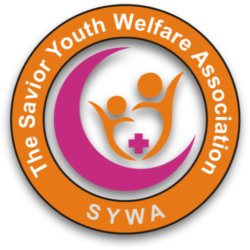1. Preamble
The Grievance Redressal Policy of The Savior Youth Welfare Association is designed to ensure a fair, transparent, and efficient mechanism for addressing any grievances or complaints from stakeholders, including students, parents/guardians, staff, volunteers, and the community. The policy aims to provide a supportive environment for resolving grievances promptly and appropriately.
2.Grievance Categories
Grievances can pertain to various aspects of Savior Youth Welfare Association’s operations, including but not limited to the following:
2.1 Discrimination or harassment based on race, caste, religion, gender, or any other form of bias.
2.2 Quality of education provided.
2.3 Treatment by staff or volunteers.
2.4 Infrastructure or facilities-related concerns.
2.5 Financial matters or resource allocation.
2.6 Any other issues affecting the well-being or rights of individuals associated with the Savior Youth Welfare Association.
3.Grievance Redressal Mechanism
The Savior Youth Welfare Association is committed to resolving grievances in a systematic and time-bound manner. The following steps outline the grievance redressal mechanism:
Step 1: Informal Resolution
Individuals are encouraged to resolve grievances informally by discussing the matter with the immediate supervisor or a designated person within the Savior Youth Welfare Association. The designated person will actively listen, empathize, and provide guidance to address the concern at the earliest possible stage.
Step 2: Formal Grievance Lodging
If the grievance remains unresolved or requires formal intervention, the concerned individual can lodge a written complaint to the Grievance Redressal Committee (GRC) within a specified timeframe. If the grievance is not resolved through informal means, the complainant should submit a written complaint to the Grievance Redressal Committee (GRC) within a specified timeframe of 14 days. The GRC should consist of impartial members, including representatives from management, teaching staff, and external experts if necessary. They should be knowledgeable about the organization’s policies and committed to ensuring a fair process. Upon receipt of a formal complaint, the GRC should acknowledge the complaint in writing and initiate an investigation within 14 days. The GRC should conduct a thorough investigation, which may involve gathering evidence, interviewing relevant parties, and seeking expert opinions if required. Based on the findings of the investigation, the GRC should provide a written decision to the complainant, explaining the resolution or action to be taken, within 30 days.
Step 3: Decision and Communication
Upon completing the investigation, the GRC will make a decision based on the merits of the case. The decision will be communicated in writing to the complainant, outlining the reasons and any remedial measures, if applicable. The decision of the GRC will be final and binding.
Step 4: Appeal
If the complainant is dissatisfied with the decision of the GRC, they may appeal in writing to the higher authority within the Savior Youth Welfare Association. The higher authority will review the appeal and take appropriate action, which will be communicated to the complainant.
4. Confidentiality and Non-Retaliation
4.1 The Savior Youth Welfare Association is committed to maintaining the confidentiality of individuals involved in the grievance redressal process, to the extent permissible by law.
4.2 The Savior Youth Welfare Association strictly prohibits any form of retaliation against individuals who lodge grievances in good faith. Any such instances will be dealt with seriously.
5. Documentation and Record Keeping
5.1 All grievances, investigations, decisions, and related communications will be documented and maintained securely and confidentially.
6. Review and Improvement
6.1 This Grievance Redressal Policy will be periodically reviewed and updated to ensure its effectiveness and alignment with changing organizational needs.
6.2 Feedback and suggestions from stakeholders will be actively sought to improve the policy and the grievance redressal process.

